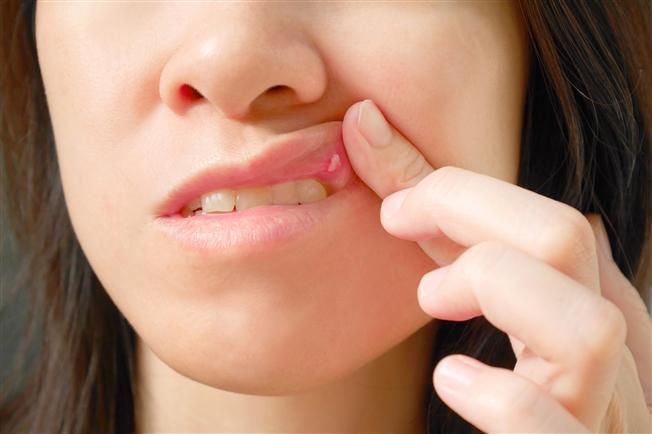BOD-ities: Is there anything I can do about canker sores?

Ouch! Is there anything I can do about recurring canker sores? They hurt, and I’m self-conscious about how often I get them.
I’ve got good news for you. While canker sores are very common and they can happen to anyone, they can also be easily prevented and treated.
First, let’s take a moment to differentiate between canker sores and cold sores, two terms that are often used interchangeably.
Cold sores develop on the outside of the lips, and are caused by HSV-1 and can sometimes be activated by excessive sun exposure. The herpes simplex virus strain that is responsible for the spread of cold sores. Often red or pink in color, cold sores are painful and can lead to blistering and crusting after several days.
While cold sores typically develop outside of the mouth, canker sores appear as yellow or white ovals inside the mouth—at the base of the gums, on or underneath the tongue and on the inside of the lips.
Unlike cold sores, canker sores are not caused by a herpes viral infection. Instead, they can be caused by a variety of factors, including allergies, mouth trauma or injury, diet, autoimmune disease and stress.
If—as you’ve indicated here—you’re experiencing recurring canker sores, it may be worth keeping a record of when your canker sores are developing. Is it after a weekend of heavy meals? Is it after a particularly stressful few days at work? Did you buy a new brand of toothpaste that could be an irritant?
You may be able to reduce your risk for canker sores by modifying some of your everyday behaviors, like:
- Limiting salty, sweet, spicy or acidic foods
- Adding a multivitamin to your diet
- Brushing, flossing or using mouthwash after each meal
- Avoid dental products that contain the ingredient sodium lauryl sulfate, which can contribute to canker sore outbreaks and pain
- Practicing stress reduction techniques
- Protecting your teeth with mouth guards or orthodontic waxes during athletic activities
If a change to these behaviors does not reduce the frequency of your canker sores, your outbreaks may be related to an allergy or an autoimmune disease, like irritable bowel disease, celiac disease or Behcet’s disease. An appointment with your doctor can help you determine an underlying cause.
Additionally, if your outbreaks continue and are accompanied by:
- A high fever
- Severe pain
- Canker sores that develop in other areas of your mouth
- Difficulty eating or drinking
- Canker sores that develop in clusters
…make an appointment with your doctor. However, in most cases, making simple changes to your oral hygiene and diet can help reduce the frequency and recurrence of canker sores.
To schedule an appointment with a specialist at Main Line Health, call 1.866.CALL.MLH (225.5654).
 Content you want, delivered to your inbox
Content you want, delivered to your inbox
Want to get the latest health and wellness articles delivered right to your inbox?
Subscribe to the Well Ahead Newsletter.
